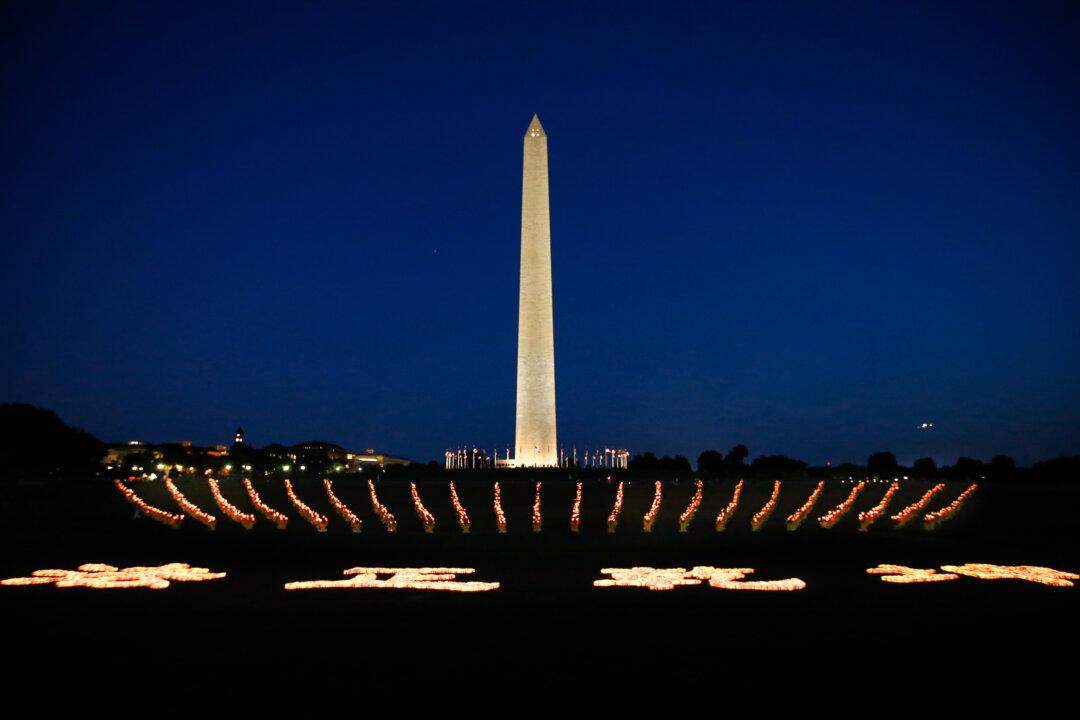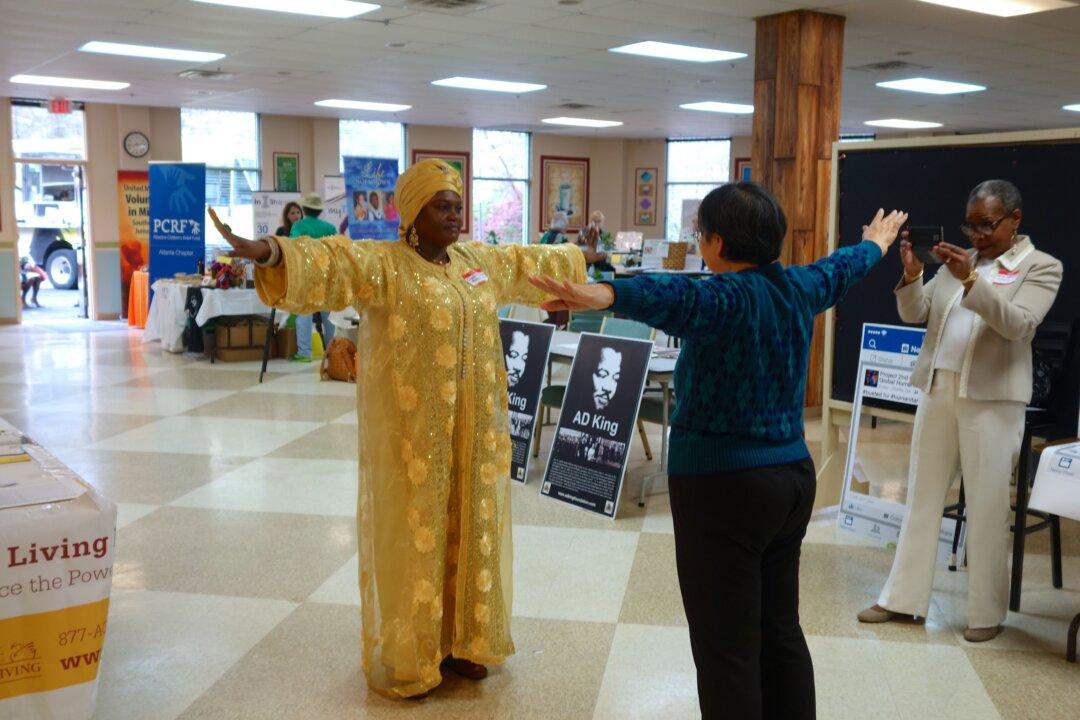WASHINGTON—Nearing twilight on a summer afternoon on the National Mall, a boy flew a kite shaped like a bird. The Marine Corps Band began to set up on stage. Two lines waited for the last chance to ascend the Washington Monument. On a wide, gentle slope in front of the obelisk, hundreds of yellow disks lay on the ground, forming a pattern like rays of light. People walked along the rows, checked that they were straight, adjusted disks the wind had folded.
In front of the rays, 12,000 votive candles formed four Chinese characters: 法正乾坤 (pronounced “Fa Zheng Qian Kun” in Mandarin.) A young couple paused and looked. They asked a slender Chinese woman in a lavender shirt what it meant. “The law rectifies the cosmos.” They asked her more questions, with serious expressions, watched the candles for a time, then walked away slowly, arms around each other’s waists.
The 16th annual candlelight vigil was about to start. It called for an end to the persecution of Falun Gong in China, which began in July 20, 1999. It paid respect to the long, brave, nonviolent resistance to the Communist Party’s suppression of Falun Gong, a peaceful practice of exercise and meditation, which teaches the values of truthfulness, compassion, and, forbearance. As sundown arrived, hundreds of people in yellow t-shirts quietly took their places, sitting cross-legged on the disks, holding candles.

Once dark fell, the rays glowed yellow. The Chinese characters in front of the rays glowed white.
A man and a woman took turns to read, “July 20th is here once again. An assembly of divine messengers converges in front of the towering monument in the U.S. Capital.
“For 16 years, the candlelight still shines … this heritage of faith transcends time and space.”
Ran Cheng, who is a post-doctorate researcher in theoretical physics, traveled from Austin, Texas, to join the vigil. He said he practices Falun Gong, and came to Washington because he feels the Communist Party’s persecution of the faith is irrational and ridiculous: he must speak out against it. “Psychologically, I have developed a strong sense of responsibility to help the general public know,” he said.

Jennifer Williams was learning about Falun Gong for the first time after she happened upon the vigil. “Whatever your belief is, I think you ought to be able to do it, and not lose your life over it.”
The Ride2Freedom team of young cyclists who just completed a transcontinental journey were at the candlelight vigil, their bikes upside down on the lawn. They rode from Los Angeles to Washington in six weeks, raising awareness of the persecution of Falun Gong and the plight of Falun Gong orphans.
Speaking of their accomplishment, one of the riders, Ghazal Tavanaei from Iran, said: “Oh, it just feels amazing. I knew that we can do it, although it seemed impossible. Because we all believed in ourselves, and we believed in each other.”





